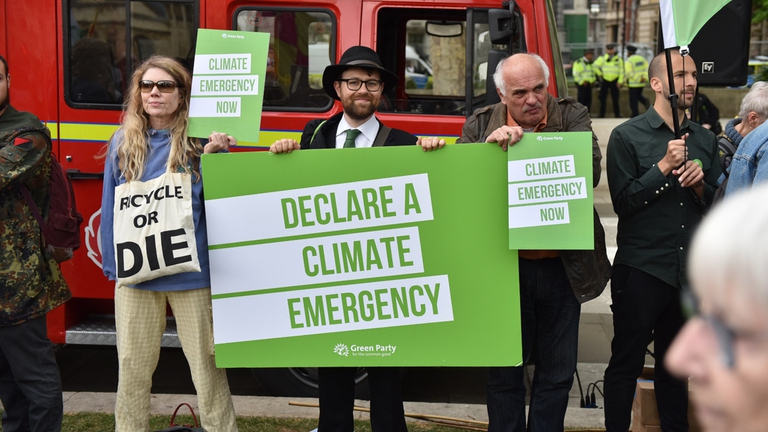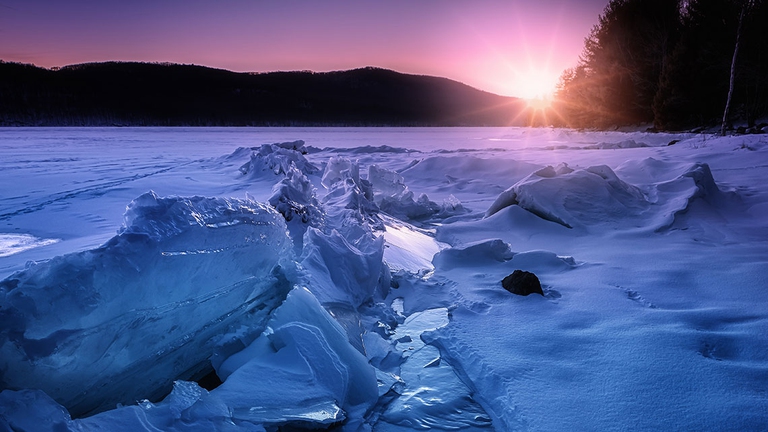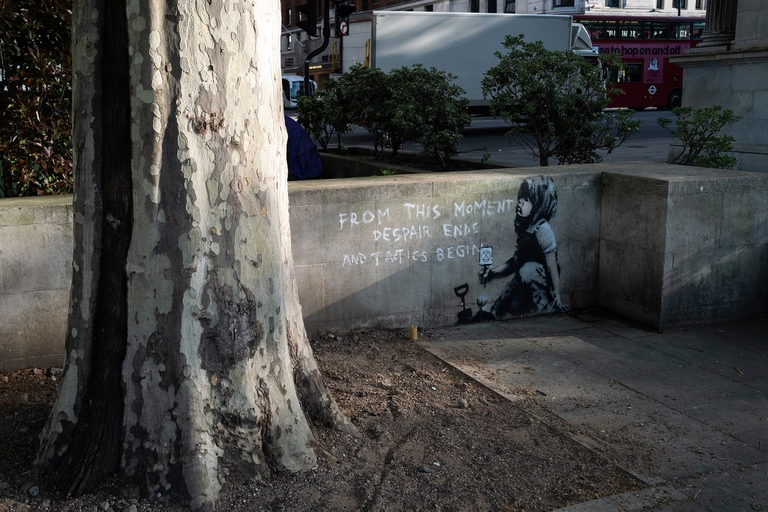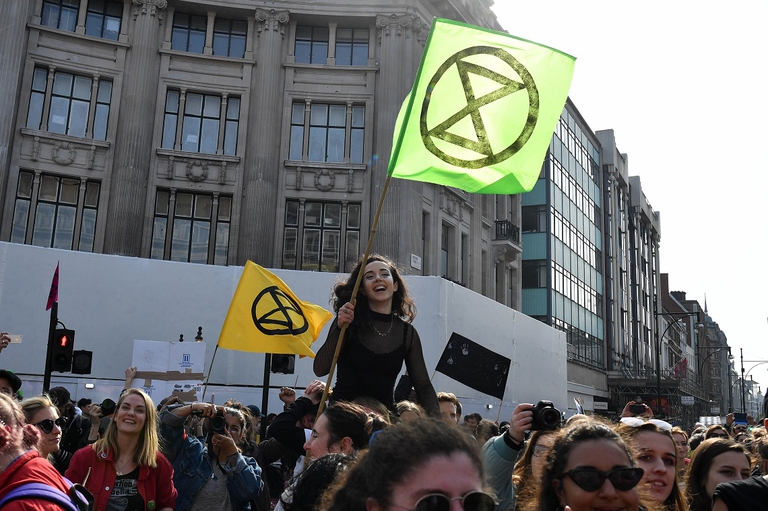
After a landslide led to twelve deaths on the island of Ischia, questions have been raised about the impacts of illegal building, tourism, and climate change.
The UK is the first nation to have officially declared a state of climate emergency. Dozens of local governments all over the world have already done so, and many others will follow the wave. We look at what this means, and where it’s been declared.
“You can’t solve an emergency without treating it like an emergency”. These are the words of young activist Greta Thunberg, and their simple and direct message resonated clearly when, on the 1st of May 1, the UK Parliament declared an environmental and climate emergency, becoming the first country in the world to do so.
The opposition Labour Party led by Jeremy Corbyn presented a motion asking the House of Commons to declare a climate emergency, following the strikes and protests that took place in the UK and all over the world asking governments to act to avoid a climate catastrophe. The issue is becoming increasingly urgent, given that the IPCC’s latest climate report set a little over ten-year deadline on enact significant change before it’s too late.
“We have no time to waste. We are living in a climate crisis that will spiral dangerously out of control unless we take rapid and dramatic action now,” Corbyn commented while presenting the motion, which passed without the need for a vote, as no opposition was raised.
WE DID IT! Thanks to pressure from the Labour Party, the UK just became the first country to declare an environment and #climateemergency. Now it’s time for real action to tackle climate change. Share this. pic.twitter.com/hOheWxQQHf
— The Labour Party (@UKLabour) May 1, 2019
With this move the UK Parliament has demonstrated, if not a concrete commitment, willingness to stand together and fight to prevent the largest threat of our times. In fact, this motion doesn’t force the government to take action but asks it to eliminate net greenhouse gas emissions completely by 2050 (compared to the current objective of 80 per cent), and bring forth proposals aimed achieving a zero waste economy that can protect and restore the environment.
In this sense, the climate emergency is a completely new state and concept. It can be declared by an authority, such as a government or local municipal council, but it’s still difficult to establish general guidelines about the way such a declaration can be applied concretely. We’re used to states of emergency being declared when a nation’s government feels it requires special powers to face critical threats, such as natural disasters, civil disorder and instability. For example, among the states of emergency declared across the world in recent memory are the one called by Italian Prime Minster Giuseppe Conte following the collapse of the Morandi bridge in Genoa in August last year, the one in Greece following devastating wildfires in the area around Athens last summer, the ones in the US related to the California wildfires in November 2018 and hurricane Florence in North Carolina and Virginia a couple of months earlier, as well as the one in Venezuela caused by the economic crisis and ensuing food shortages.
In this case, however, the focus is “restricted” to the environmental sphere, and all activities related to it. As explained by the BBC, although a clear definition of climate emergency doesn’t yet exist, those who promoted and call for it set the goal of working towards carbon neutrality in response to the impending climate crisis.
This is no longer about a distant future. We’re talking about nothing less than the irreversible destruction of the environment within our lifetimes.Jeremy Corbyn, Labour Party leader
The United Kingdom is the first nation in the world to have officially declared an environmental and climate emergency, but before it other states, municipal and local governments have paved the way. The most recent being Scotland: First Minister Nicola Sturgeon declared a climate emergency on the 28th of April. “A few weeks ago, I met some of the young climate change campaigners who’ve gone on strike from school to raise awareness of their cause. They want governments around the world to declare a climate emergency. They say that’s what the science tells us. And they’re right,” Sturgeon said. “So today, as first minister of Scotland, I am declaring that there is a climate emergency, and Scotland will live up to its responsibility to tackle it”. In the UK alone, 60 councils have also already declared a climate emergency, from large cities like Manchester, London, Edinburgh and Bath to small villages like Machynlleth. Even across the rest of the world, from Canada to Australia, more and more local councils are bringing forth motions and declarations.
Climate emergency declarations have been appearing within the contexts of climate change movements that have come to prominence across the globe, asking for immediate action to limit the increase in global average temperatures. In particular, the success of the motion in the UK Parliament came following the peaceful protests of the Extinction Rebellion movement, which for weeks occupied various areas in London asking politicians to acknowledge the magnitude of the ecological crisis, and take action accordingly, starting by declaring the emergency. A similar impact can be ascribed to the Fridays for Future climate strikes started in August 2018 by young Swedish climate activist Greta Thunberg, who inspired young and old people in countries all over the world to raise their voices.
All these movements have been able to join in a call not to arms, but to the conscience of every individual, to understand that the crises that afflict the climate, environment and planet aren’t just numbers and statistics predicting future change, but are already happening, even in our back garden. In fact, as UK Secretary of State for the Environment Michael Gove commented: “While statistics can sometimes be abstract and the impact can seem distant, we can all know that as individual citizens and as parents that the next generation will face the consequences if we do not take action now to deal with climate change”.
This can set off a wave of action from parliaments and governments around the globe.Jeremy Corbyn, Labour Party leader
The hope now is that more and more governments all over the world follow this example, and that along with the declarations there will also be concrete actions to reduce emissions and protect the planet. Although many feel it’s only a symbolic gesture, the declaration of a climate emergency is certainly a good starting point. Because admitting that a problem exists is the first step towards solving it.
Siamo anche su WhatsApp. Segui il canale ufficiale LifeGate per restare aggiornata, aggiornato sulle ultime notizie e sulle nostre attività.
![]()
Quest'opera è distribuita con Licenza Creative Commons Attribuzione - Non commerciale - Non opere derivate 4.0 Internazionale.
After a landslide led to twelve deaths on the island of Ischia, questions have been raised about the impacts of illegal building, tourism, and climate change.
Not much snow, peaks of 19 degrees Celsius in Norway and even 28 degrees in France: official data confirms the anomalously high temperatures of this past winter.
Ocean warming has risen to record highs over the last five years: just in 2019 the heat released into the world’s oceans was equivalent to that of 5-6 atomic bombs per second. The culprit, no doubt, is climate change.
What did Greta Thunberg tell participants at the 2020 World Economic Forum in Davos? Once again, the Swedish activist underlined the total lack of concrete solutions to the climate crisis presented by leaders so far.
The list of human and animal victims of the Australia wildfires keeps growing – one species might already have gone extinct – as the smoke even reaches South America.
Kivalina is located on a small island once guarded by sea ice, which is now melting due to global warming. While the sea threatens to wipe the village off the face of the Earth, its inhabitants refuse to give up their lives and traditions.
Thanks to activists, the voice of the world’s peoples resounded through the COP25 like an alarm bell. Governments didn’t reach the results they demanded, but their cries and messages were stronger than ever, reaching even those who weren’t in Madrid.
Climate change poses a risk for millions. However, women are the most vulnerable to its negative consequences: a few simple considerations by the Italian Climate Network help us perceive the global implications of this.
The COP25 ended two days late and with very few steps ahead made. Climate negotiations in 2020 will be an uphill battle as political will clearly seems to be lacking, once again.











